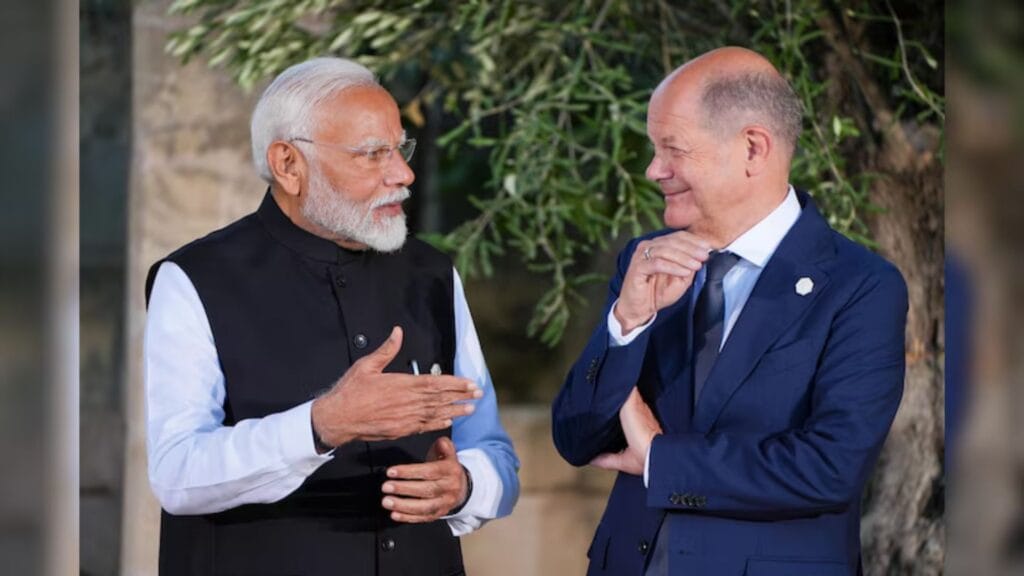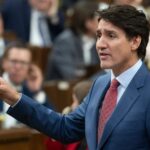German Chancellor Olaf Scholz recently landed in New Delhi for a crucial three-day visit to India. Narendra Modi has invited him for the visit, which will take place from October 24 through 26. The visit is not just another diplomatic meeting. Still, it is centered around the critical strategic partnerships the two nations are looking for on many key issues from defense and trade to clean energy.

The Ministry of External Affairs posted on X (formerly Twitter) that Scholz is in the country for the 7th Intergovernmental Consultations (IGC) and to participate at the 18th Asia Pacific Conference of German Business (APK 2024). He arrived in the capital late on Thursday night where he was received by Indian Minister of State for Home Affairs Nityanand Rai.
Now, what is very important during this visit is the larger context of the Intergovernmental Consultations, IGC. This IGC is, in its essence, an institutionalized body to which ministers from Germany and India come and deliberate upon various key issues in their respective arenas. And they put it in the ears of their leaders Prime Minister Modi, their Chancellor Scholz, so to speak. It is not something new as the last one took place in Berlin back in May 2022.
The IGC framework enables a country to have a very structured and organized conversation on several issues. But to me, personally, such talks sometimes do not lead to any big breakthrough. Even though these meetings sound grand, I believe the actual work occurs much later once the discussions have been analyzed and actions begin on the ground.
ALSO READ | U.S. and Allies Finalize $50 Billion Loan for Ukraine, from the Frozen Russian Assets
It is an interesting time for Scholz’s visit, as India increasingly becomes a world player, particularly in fields such as renewable energy and tech. The strengthening of the German-Indian Green and Sustainable Development Partnership (GSDP) is one of the key things to expect as it will cement the two nations closer when it comes to sustainable development initiatives. But again, if one asks me, I am skeptical as to how much of this will be translated into actionable steps, given the complexity of tying up deals at this scale.
Germany’s Cabinet passed another document, ‘Focus on India’, which informs the public of the very readiness to upgrade the relationship with India. It looks like this agreement can be greeted as if both countries are in a great mood to deepen their ties, but I wonder if it will have direct on-ground improvements, particularly in terms of collaboration when it comes to trade and defense. Sometimes, these diplomatic gestures have more symbolic value rather than pragmatic.
And one thing that scares me is the way such countries as Germany treat their bilateral relations, especially under this new geopolitical order. Just take Canada for example Trudeau’s damage control over India is already creating waves, and quite frankly, I do feel Scholz must be on guard. While Germany is raising the stakes with India, one should not do what some leaders are doing in their misadventure with India. Trudeau’s experience should be a cautionary note for anyone trying to play games with global partnerships under the current circumstances.
Clean energy partnerships, to say the least, excite me immensely. This would in fact turn out to be a concrete step toward greener alternatives, and much needs to be contributed by India in that regard. It’s a game-changer if the expertise of Germany is harnessed with the increasing market in India and, of course, after plenty of red tape that goes into such collaborations.
In conclusion, Germany and India must have such grand diplomatic meetings. Now, we need to see if there are tangible outcomes of these meets or not. Also, if this visit of Scholz forms one stepping stone in the progress between these two nations, particularly in matters like defense, trade, and clean energy, it becomes something more important. Otherwise, it is yet another round of talks with no follow-up action.
Minutes by M31GlobalNews






